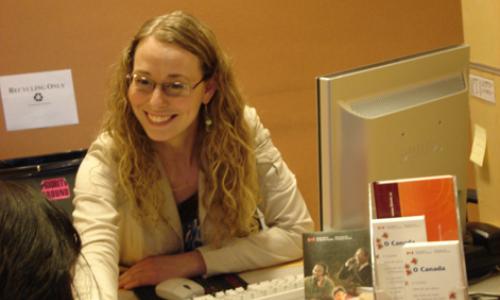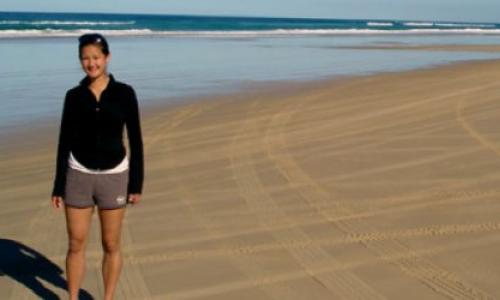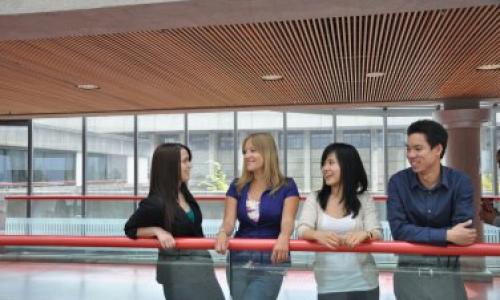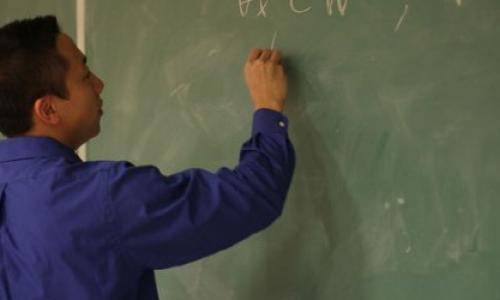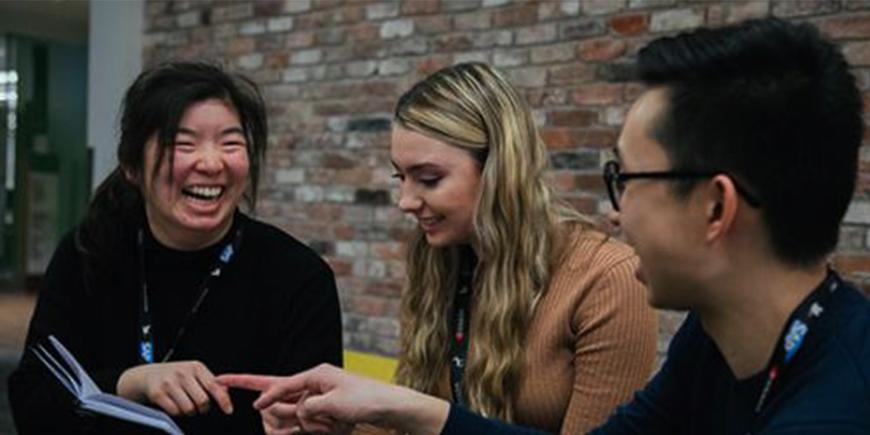
Going into my internship, I was nervous that I wouldn’t have the technical skills I needed to do well in my co-op position. With only 60 credits under my belt but all of my WQB requirements for my degree fulfilled, I have done my fair share of electives. Many of the electives that I chose to study were out of interest, and not related to the field of communications at all – or so I thought.
As a Communications Specialist at SAP, I’ve gotten the chance to work on a variety of tasks that I never thought I would get to do. In a communications posting, I expected social media and blogging – instead, I got podcasting and even event-planning.
As I got further into my internship, I started to realize that although the communications courses that I took had prepared me fairly well for my position, there was also great value in the non-communications courses that I had taken. My learnings from these classes have given my co-op experience that extra boost.
Here are four electives that I have taken that have helped me prepare for my co-op experience:
1. COGS 110 – Learning in Everyday Life: The Art and Science of Hacking your Brain
As the name of the course might hint, I first signed up for this class because I was so frustrated with my study methods and needed a way to work smarter, not harder.
Lucky for me, I not only picked up some much-needed study hacks, but also learned a lot about motivation and the process of learning. We learned about meaningful goal-setting and what it takes to actually achieve those goals (Yes, I’m definitely talking about those perpetually unattainable New Year’s resolutions). Going into my co-op with these concepts in mind allowed me to establish appropriate goals and a plan for how to work towards them. It’s also given me some insight into the value of education and all the different forms that it can take, even beyond the context of a classroom.
It’s hard to articulate and list my exact takeaways from this course, but it helped me develop a whole new perspective on learning and allowed me to better understand myself. You’ll have to take the course yourself to see what I mean!
2. FREN 210 – Intermediate French I
Being a part of a global company, I get to work with people from all over the world. On any given day, you can find me interacting with at least one person from outside of our Vancouver office. With over 180 offices all over the world, there’s no shortage of languages spoken by SAP employees. Among those languages is French.
Almost on a weekly basis, I’ve had the chance to use my knowledge of French on the job.
Whether it’s researching content for the newsletters I put together, or just reading a forwarded email from a French colleague, it has given me immense pleasure to be able to understand texts without plugging it into Google Translate. It’s also allowed me to engage deeper with the
French material and colleagues that I work with. More than ever before, I’ve come to realize how beneficial a second language can be in the workplace.
3. HIST 451/GSWS 830 – Oral History: Theories and Practices
Before taking this course, I had never taken a History course nor a seminar. Walking into the classroom on the first day to a room full of History undergrad students and GSWS grad students, I almost dropped the course immediately. However, the sensible, fear-loving voice in the back of my head told me to stay.
Over the remainder of the semester, my classmates and I worked together to put together an oral history project on the evolution of Vancouver’s Chinatown since the 1990s. The skills I learned in preparing and conducting oral history interviews with almost a dozen
Chinatown community members have prepared me to do podcast interviews like nothing other.
Editing these interview recordings into a cohesive final project truly was foreshadowing for what was to come a month later, as I edited and produced the first episode of a new podcast series for work.
4. BUS 221 – Personal Finance
If there is one course out there that I recommend all students take, this is it.
As students, we all know what it’s like to pinch pennies and work with a deficit. However, when all the stars align in our favour, there will hopefully be a day where that is no longer the case.
Whether that day ever comes or not, this course will have you financially prepared to take on the world. Knowing that I would be working full-time the following semester, I took this course because I realized I was financially illiterate and about to enter the workforce full-time.
This course has helped me understand so many basic but essential financial concepts that every person should know, from credit cards to saving for an emergency fund and planning for retirement during your twenties. It also helped me understand what it means to plan for your future and adapting that according to your career and personal goals. It’s important for students to understand that, in addition to your physical and mental health, your financial health is also that is important and requires monitoring!
After finishing my first co-op term, I’ve come to realize that there is no useless course – everything finds a way to trickle back into your life and your work somehow, if you are paying attention. Like the famous Oscar Wilde quote says, “you can never be overdressed or overeducated!”









